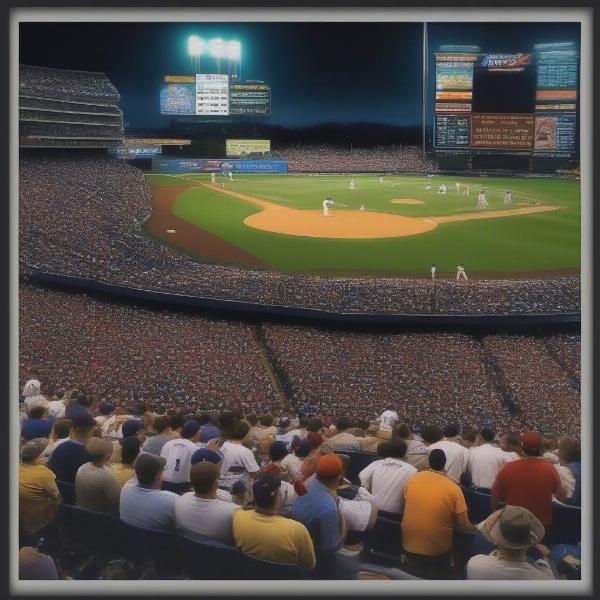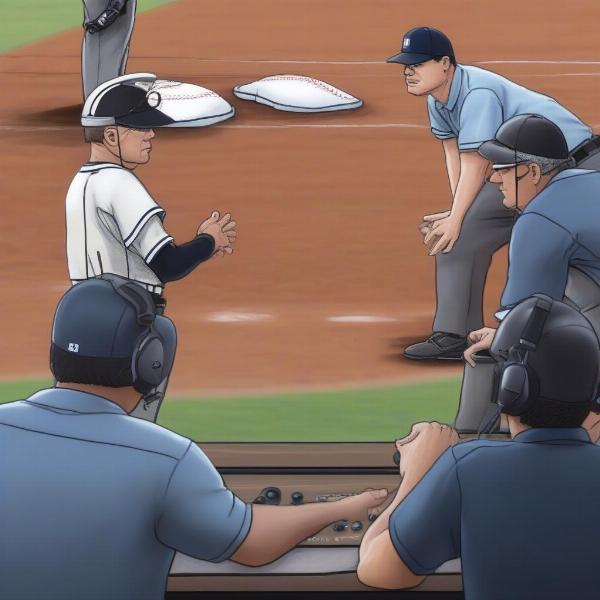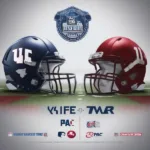A baseball game doesn’t have a clock, leading many to wonder, just how long does a baseball game last? While there’s no definitive answer, the average Major League Baseball (MLB) game hovers around three hours. However, several factors can stretch or shrink this timeframe. Let’s dive into the nuances of baseball game length.
After decades of nine-inning games frequently exceeding three hours, recent rule changes implemented in the 2023 season are having a noticeable effect. Pitch clocks, aimed at speeding up the game, have successfully shaved off about 25 minutes from the average MLB game length. This change has brought a renewed energy to the sport, making it more appealing to fans with busy schedules. But even with these adjustments, various elements still contribute to the overall duration of a game.
Factors Affecting Baseball Game Length
Several key elements contribute to the ebb and flow of a baseball game’s duration. Understanding these factors can give fans a better idea of what to expect when attending or watching a game.
Pitching Changes and Strategic Timeouts
Frequent pitching changes, a hallmark of modern baseball strategy, can significantly lengthen a game. Each substitution requires time for the new pitcher to warm up and settle in. Similarly, managerial discussions and strategic timeouts, while crucial for in-game adjustments, add minutes to the overall clock.
Scoring and Offensive Production
High-scoring games, filled with hits, walks, and runs, naturally take longer than low-scoring pitchers’ duels. More action on the basepaths translates to more time between pitches and innings. Conversely, a game dominated by strikeouts and quick outs can move along swiftly.
Extra Innings
Perhaps the most significant factor influencing game length is extra innings. When a game is tied after nine innings, play continues until one team emerges victorious. This can add significant time, sometimes extending the game by an hour or more and adding to the dramatic tension.
 Baseball game going into extra innings at night
Baseball game going into extra innings at night
Weather Delays
Rain delays, while sometimes unavoidable, can disrupt the flow and extend the overall time commitment for a baseball game. These delays can range from a few minutes to several hours, depending on the severity of the weather. Sometimes, games are even postponed and rescheduled for a later date.
Instant Replay Reviews
The introduction of instant replay has undoubtedly improved the accuracy of officiating in baseball. However, it also adds another layer of complexity and time to the game. While reviews are designed to be efficient, they inevitably add pauses to the action as officials carefully examine the play in question.
 Umpire reviewing a close play using instant replay
Umpire reviewing a close play using instant replay
How Have Rule Changes Impacted Game Time?
As mentioned earlier, recent rule changes, specifically the implementation of a pitch clock, have dramatically reduced average game times. These changes were introduced to address the growing concern about the length of baseball games and to make the sport more accessible to a wider audience. The pitch clock has had a significant impact, proving to be a successful tool in speeding up the pace of play.
The Impact of the Pitch Clock
The pitch clock has injected a new rhythm into baseball. Pitchers now have a limited time to deliver the ball, and batters must be ready in the batter’s box. This faster pace has led to more balls in play and a more dynamic game experience for both players and spectators. Fans appreciate the quicker pace, and players have adapted to the new rhythm.
“The pitch clock has been a game-changer,” says fictional MLB analyst, Michael “Mikey Bats” Battaglia. “It’s brought a new energy to the sport, making it more exciting and unpredictable.”
Attending a Baseball Game: What to Expect
For those planning to attend a baseball game, it’s wise to factor in the potential time commitment. While the average game is now shorter thanks to the rule changes, it’s still advisable to allow for extra time, especially if you’re attending a game with potential playoff implications or rivalry matchups. Knowing this can help you manage your time effectively and fully enjoy the experience.
Planning Your Trip to the Ballpark
Before heading to the stadium, consider factors like traffic, parking, and time to get through security. Planning ahead, especially for popular games, can save you time and hassle. You might be interested in knowing how early can you get into a reds game, for instance. This can enhance your overall game day experience and allow you to savor the atmosphere before the first pitch. Similarly, knowing the answer to questions like what was the score of the florida game can fuel conversations and connect you with fellow fans.
 Family watching a baseball game at the stadium
Family watching a baseball game at the stadium
What is the Shortest MLB Game Ever Recorded?
While most fans are concerned about how long a game might last, some are curious about the quickest games in MLB history. The shortest nine-inning game in MLB history lasted a mere 51 minutes. This record, a testament to efficient pitching and quick outs, highlights the dynamic nature of baseball.
“These quick games remind us that baseball can be a fast-paced, exciting sport,” adds Battaglia. “They’re a throwback to a different era.”
Conclusion
So, How Long Do A Baseball Game Last? While the average MLB game is now around two and a half hours thanks to new rules, various factors can still influence the final duration. From pitching changes and extra innings to weather delays and instant replay reviews, these elements contribute to the unique ebb and flow of a baseball game. By understanding these factors, fans can better prepare for their game day experience and fully appreciate America’s pastime. We encourage you to share this guide with fellow baseball enthusiasts and contribute to the ongoing conversation about the evolving nature of this beloved sport.
FAQ
-
What is the average length of an MLB game?
The average MLB game is currently around two and a half hours. -
What factors can make a baseball game longer?
Factors like pitching changes, high-scoring games, extra innings, weather delays, and instant replay reviews can all contribute to longer game times. -
How have recent rule changes impacted game length?
The implementation of a pitch clock has significantly reduced the average game time by approximately 25 minutes. -
What is the shortest MLB game ever recorded?
The shortest nine-inning MLB game lasted just 51 minutes. -
What should I consider when planning to attend a baseball game?
Consider factors like traffic, parking, security lines, and potential weather delays when planning your trip to the ballpark. -
How do extra innings affect game length?
Extra innings can significantly extend a game, sometimes adding an hour or more to the overall time. -
Why are pitching changes a factor in game length?
Pitching changes require time for the new pitcher to warm up, which can add to the overall duration of the game.

